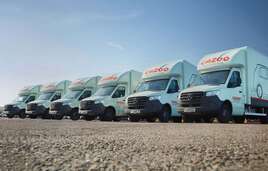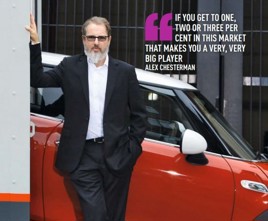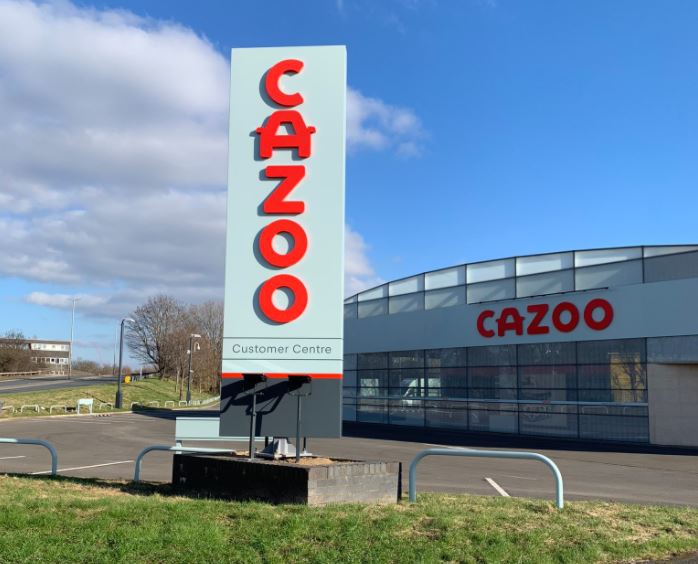The restructuring agreement announced by online car dealer Cazoo this week to “deleverage” its capital structure and further improve its “financial flexibility” won't yet smooth its investors' journey, and stakeholders should "buckle up" according to one expert.
It was revealed on Wednesday that the automotive e-commerce firm Cazoo and its bondholders agreed a debt-for-equity swap, replacing nearly $630m (£509m) of debt for $200m of new debt and equity stakes.
Many of those who took Cazoo shares – which have fallen in value by more than 95% since its New York Stock Exchange listing – are now facing a grim loss, and the debt for equity swap will further dilute the value of those shares.
"Existing shareholders are left with an 8% stake in the business, currently worth just $38 million. It’s a long way down from the $7 billion valuation when Cazoo was listed in 2021 via a special purpose acquisition company (SPAC)," said Aimee Donnellan, Reuters Breakingviews columnist and commentator.
 She added: "The debt cut will do little to fix Cazoo’s rickety engine. Although the company had £195 million of cash at the end of June, it burnt through over 50 million pounds in the previous six months. And revenue this year is expected to fall nearly 40%, as customers racked by high interest rates tighten their belts.
She added: "The debt cut will do little to fix Cazoo’s rickety engine. Although the company had £195 million of cash at the end of June, it burnt through over 50 million pounds in the previous six months. And revenue this year is expected to fall nearly 40%, as customers racked by high interest rates tighten their belts.
"The cash pile should see Cazoo through to 2025, when it is expected to break even, but gross debt of $307 million, including bank loans, would still be equivalent to 15 times forecast EBITDA of $20 million, according to LSEG estimates. Cazoo’s new owners should buckle up."
Sky News reported the swap would leave US-based fund Viking Global Investors as its biggest shareholder.
Although the debt-maturity profile has not changed, the debt level has still been “significantly reduced,” Cazoo's announcement said.
It hopes the “major milestone” agreement should help various important business components, including securing its US market foothold.
“Deleveraging will reduce the company’s current debt overhang, is expected to improve the company’s financial flexibility to support its return to growth, should improve the company’s ability to meet the NYSE continued listing standards and should facilitate progress on various strategic options,” Cazoo said.
 Alex Chesterman, founder and executive chairman of Cazoo, said the restructuring "represents an opportunity to significantly deleverage Cazoo’s capital structure and enhance the financial flexibility Cazoo needs in order to achieve profitable growth,” .
Alex Chesterman, founder and executive chairman of Cazoo, said the restructuring "represents an opportunity to significantly deleverage Cazoo’s capital structure and enhance the financial flexibility Cazoo needs in order to achieve profitable growth,” .
Chesterman said Cazoo is making “good progress” on unit economics improvement and fixed cost reduction, further allowing the company to meet its “objective of achieving profitable growth and capturing a higher share of the significant UK used car market.”
“Cazoo’s stronger balance sheet, if the transactions are implemented, is expected to strengthen our ability to raise additional finance and the deleveraged capital structure will enable us to explore potential strategic initiatives to complement the Cazoo business model and brand,” he added.
The debt restructuring follows huge corporate restructuring by Cazoo, which has withdrawn from EU markets, closed two in three of its UK customer handover centres, slashed its transporter fleet by a fifth, halved its vehicle preparation centres and cut hundreds of jobs.
Such measures had helped Cazoo increase its gross profit per unit to £1,106 by the end of the first half of 2023 as it battles to become profitable after two years of growing at the cost of profits.


















Login to comment
Comments
No comments have been made yet.